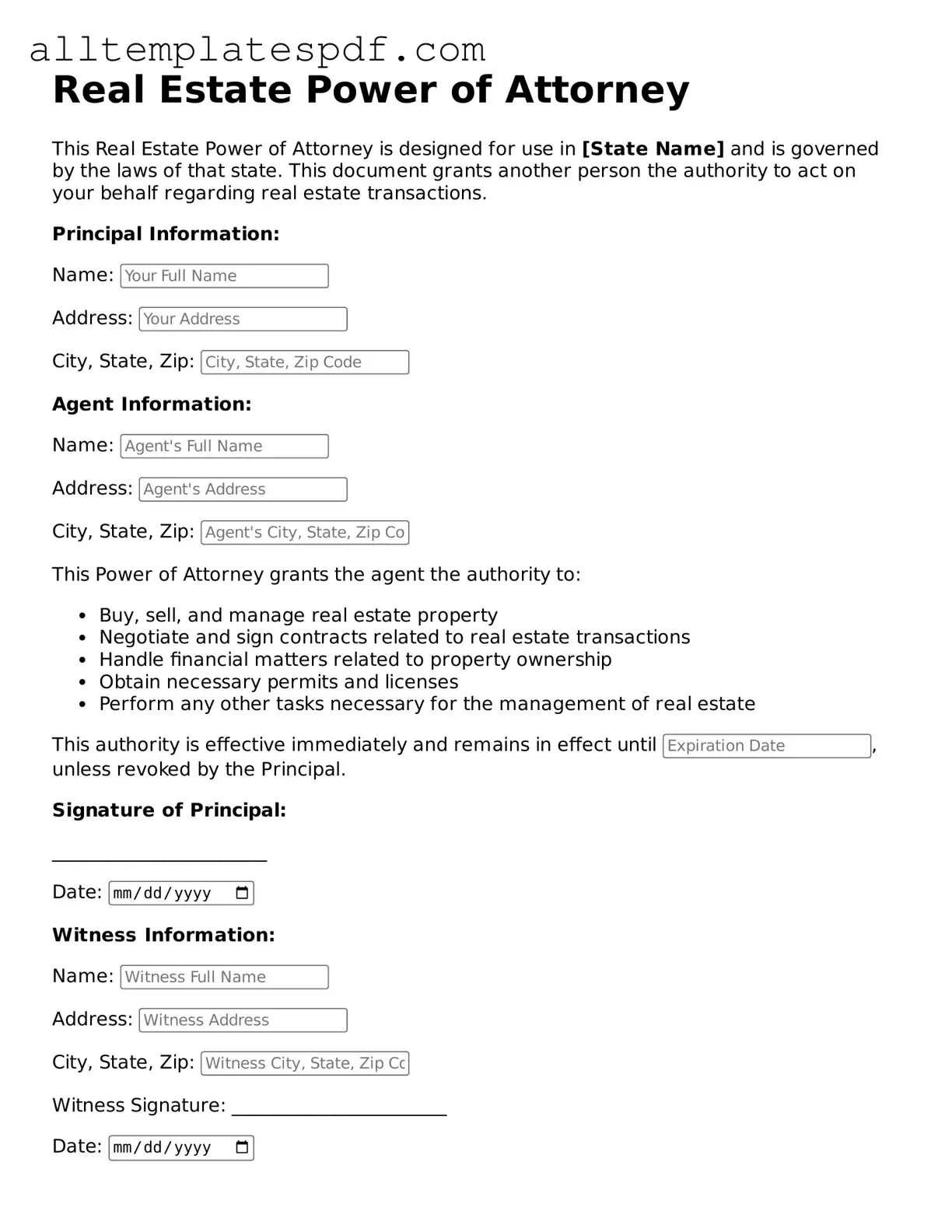Filling out a Real Estate Power of Attorney form can be a straightforward process, but mistakes are common. One of the most significant errors is failing to specify the powers granted. A vague description may lead to confusion or disputes later. It is crucial to clearly outline the authority being given, whether it’s buying, selling, or managing property.
Another common mistake is neglecting to include the correct names of the parties involved. The principal and the agent must be accurately identified to avoid any legal complications. Misspellings or incorrect titles can render the document ineffective.
Many individuals also overlook the importance of signing the form. A Power of Attorney must be signed by the principal to be valid. If the principal is unable to sign due to incapacity, it may be necessary to have a witness or notary present, depending on state laws.
In some cases, people forget to date the document. A date is essential as it establishes when the powers take effect. Without a date, questions may arise about the validity of the Power of Attorney, especially if it is challenged later.
Another frequent error is failing to understand the implications of granting power. Some individuals may not fully grasp the extent of the authority they are giving. It’s vital to consider the potential risks and responsibilities associated with this decision.
Additionally, people often neglect to review state-specific requirements. Each state has its own laws regarding Powers of Attorney, and failing to comply with these can lead to invalidation of the document. It is important to research or consult an expert to ensure compliance.
Inaccurate or incomplete property descriptions can also cause issues. When real estate is involved, the property must be clearly identified. Omitting details such as address or parcel number can lead to confusion and disputes.
Another mistake is not keeping a copy of the signed document. Retaining a copy is essential for both the principal and the agent. This ensures that both parties are aware of the powers granted and can refer to the document when necessary.
Finally, individuals may forget to revoke a Power of Attorney when it is no longer needed. If circumstances change, it is important to formally revoke the authority granted. Failing to do so can lead to unauthorized actions being taken by the agent.

